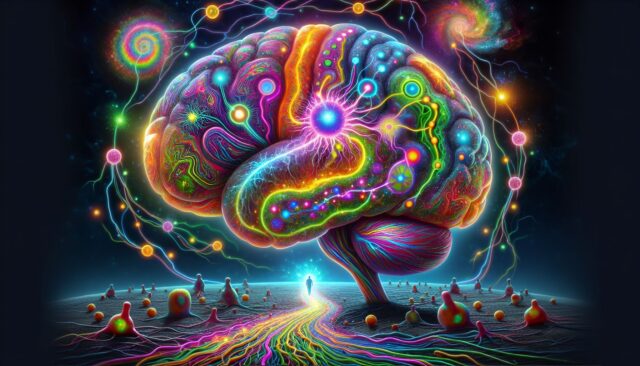LSD, or lysergic acid diethylamide, has long been recognized as a psychedelic drug known to alter perception and induce hallucinatory experiences. While its use has been prevalent among young adults seeking mind-altering experiences, it is crucial to recognize the potential impact it may have on the developing brain. In this article, we embark on a journey to explore the effects of LSD on young minds, empowering readers to make informed decisions about their own lives and adventures.
Introduction
As young adults venture into the realm of experimentation, LSD often takes center stage due to its reputation for inducing profound experiences and expanding one’s perception of reality. Understanding the potential consequences, both positive and negative, is crucial for making responsible choices. Let us dive deep into the realm of LSD and its impact on the youthful brain.
The Effects of LSD on the Brain
LSD is a compound that interacts primarily with serotonin receptors in the brain, leading to altered thinking, sensory perception, and mood. These effects are a result of heightened neural activity, causing the brain to process information in novel ways.
1. Increased Neural Connectivity
Research suggests that LSD strengthens connections between brain regions that don’t typically communicate extensively. This heightened connectivity allows for enhanced cross-talk between different areas, potentially leading to unconventional thinking, creativity, and increased introspection. Such experiences could be seen as vehicles for personal growth and self-discovery.
2. Altered Perceptions and Hallucinations
LSD’s most recognized effect is its ability to induce hallucinations and altered perceptions. By binding to serotonin receptors, LSD generates an influx of sensory information, leading to distortions, synesthesia (a blending of senses), and visual hallucinations. While these experiences can be intriguing and offer new perspectives, they may also be overwhelming or induce anxiety, potentially leading to negative consequences.
3. Mood and Emotional Regulation
LSD has been reported to impact mood and emotional regulation. Though the exact mechanisms are not fully understood, it is believed that the drug interacts with the amygdala, an area responsible for processing emotions. While some individuals may experience enhanced positive emotions and a sense of euphoria, others may encounter increased anxiety or negative emotional states during a trip. The emotional rollercoaster during and after LSD use can have varying effects, especially for those who are emotionally vulnerable.
4. Long-Term Neuroplasticity
One intriguing aspect of LSD is its potential long-term impact on brain plasticity. Research has suggested that LSD promotes neurite growth and increases the complexity of neural circuits. This phenomenon presents an opportunity for structural changes in the brain that could influence cognition, creativity, and even psychological disorders. However, further research is required to fully comprehend the implications of such long-term neuroplasticity.
Being Mindful: A Balance Between Exploration and Caution
While the effects of LSD on the developing brain are still being studied, it is important for young adults to approach any form of substance use with care and mindfulness. Each person’s mental health and vulnerability can significantly impact their reaction to LSD. Additionally, the dose and the context in which the drug is taken can influence the experience.
Conclusion
Embarking on life adventures and exploring the mind’s depths is a natural part of young adulthood. However, it is essential to approach such experiences with awareness and caution. LSD’s impact on the developing brain can be a source of both wonder and concern, providing new perspectives while possibly influencing long-term neuroplasticity and emotional well-being.
As individuals, we must stay informed, relying on scientific research and professional advice. By doing so, we can make responsible decisions about our own journeys and live and learn from each experience. After all, life’s adventures are meant to shape us, but we must be proactive in shaping them as well.
